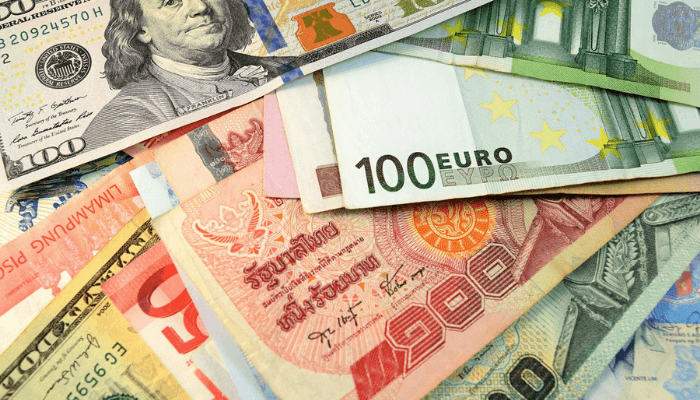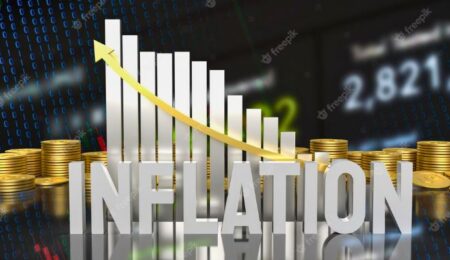The unification of Nigeria’s foreign exchange rates is expected to bring many positive results, including lowering the pressure on foreign reserves.
“A key benefit of the policy is the elimination of losses resulting from the arbitrage spread, which could help alleviate pressure on the gross official reserves,” FBNQuest, a Lagos-based investment firm, said in a recent note.
“Provisional data from the CBN shows that the regulatory bank’s total FX sales through its official windows amounted to almost $15.3 billion in 2022, resulting in an estimated opportunity cost of approximately N4.6 trillion,” it added.
In a significant move, the Central Bank of Nigeria (CBN) collapsed all segments of the FX markets into the Investors and Exporters (I&E) window on June 14, 2023.
This means that all eligible FX transactions in the market will now be conducted exclusively through the I&E window.
The I&E market functions by a willing buyer, willing seller system, where an entity with demand for FX seeks out another entity with FX to sell at an agreed price through an authorised dealer.
The exchange rate gap/spread between the official and the parallel market last Wednesday closed by 99.33 percent to N1.83 per dollar from N275 in April this year. The dollar was quoted at N763.17 at the I&E window and at N765 at the parallel market. The naira-dollar exchange rate converged on Tuesday, closing at the rate of N756 at both markets.
The FBNQuest said a significant fiscal benefit is the expected increase in revenue disbursements to the federal, state, and local governments as a result of the higher exchange rate applied to convert oil revenue proceeds.
It, however, said a negative implication is a potential rise in the naira value of the government’s external debt stock and by extension the debt service burden.
“Nigeria’s external debt stock totaled $41.7 billion as of the end of 2022, roughly equivalent to N18.7 trillion based on an official rate of N448.6/$. Assuming the FX rate eventually settles at N750/$, this would result in a 57 percent rise in the naira value of the external debt stock to N31.3 trillion,” it said.
Data from the National Bureau of Statistics showed that foreign direct investment (FDI) in the country fell by 33 percent to $468.91 million in 2022.
Analysts believe that the unification of the naira through the consolidation of the FX markets will drive investor confidence higher.
“In our opinion, this development is positive as it is expected to boost investors’ confidence further, thus, attracting FX inflows. Nonetheless, we maintain that an increase in FX supply and conscious FX management will allow the fruits of the development to be fully enjoyed,” said Meristem research analysts in their June 16 note.
Analysts at Lagos-based CardinalStone, in their June 19 note, said removing restrictions on domiciliary accounts may combine with the flexible FX pricing framework to support improved capture of autonomous dollar inflows into the country in the near to medium term and boost confidence.
During a panel session at the 7th edition of the International Court of Arbitration Africa Conference on International Arbitration in Lagos, Oscar Onyema, group chief executive officer of Nigerian Exchange Group, said: “Money goes to the least resistant places where it can get the best risk adjustment returns and without unnecessary hassles because there is competition across the globe.”
“On what we have seen in the last eight years, there has been an outflow of foreign portfolio investments predominantly and so more than half of our markets outside of America, but with these policy changes, you can begin to understand why we are very optimistic that these flows will come back and with it, attract additional flows”, Onyema said, referring to subsidy removal and exchange rate unification.
Lawrence Messi, an analyst at a Lagos-based credit bureau Infracredit, said the unification of the naira will boost foreign investors’ confidence in Nigeria.
“Nigeria stands to gain foreign investor’s confidence. Unification makes it clear that the exchange rate is just one and thus allows for better business planning and FDI incentivisation,” he said.
Messi said that the unification of the naira alone won’t pull foreign investors.
“That in itself is not the cure; it’s just one step in a multitude of reforms that need to take place for full investor confidence in the sector,” he said.
While this unification has generated optimism among analysts and experts, there are also concerns about its long-term sustainability and the need for further reforms to attract foreign investment.
However, he says that it’s too early to determine the effect on FDI. “Well it’s too early to tell, FDI is solely dependent on ease of doing business policy stability and viable returns from bankable projects. So until it becomes clear in what direction policy is moving we can make an accurate assessment.”
Tosin Osunkoya, managing partner at Commercio Partners, also believes that the recent reforms are not enough to sustain investment in the long run.
He said: “I don’t think the recent reforms are enough to sustain investment sentiment for a long period of time. We need to see more of these actions. It is important for us to note that what has happened in the last two weeks or three weeks has been something the market has been waiting for.
“Our market has been panting for the removal of fuel subsidies and waiting for the unification of the foreign exchange market and that has happened and has brought well for the market.”






